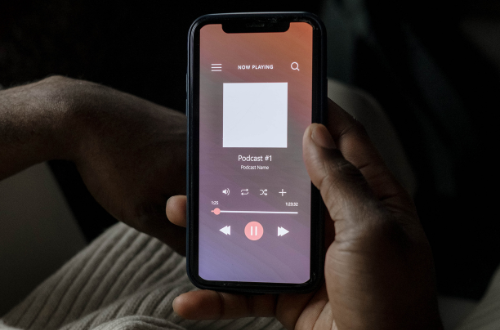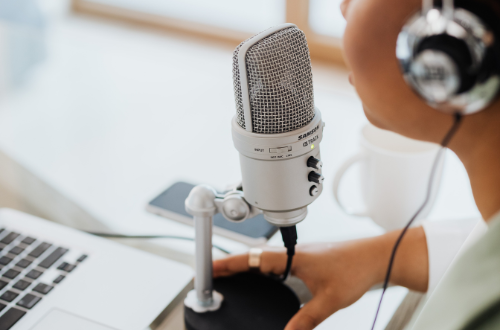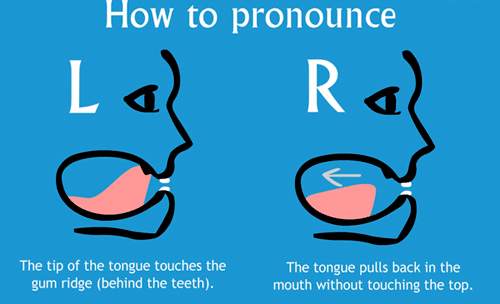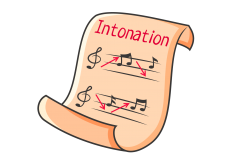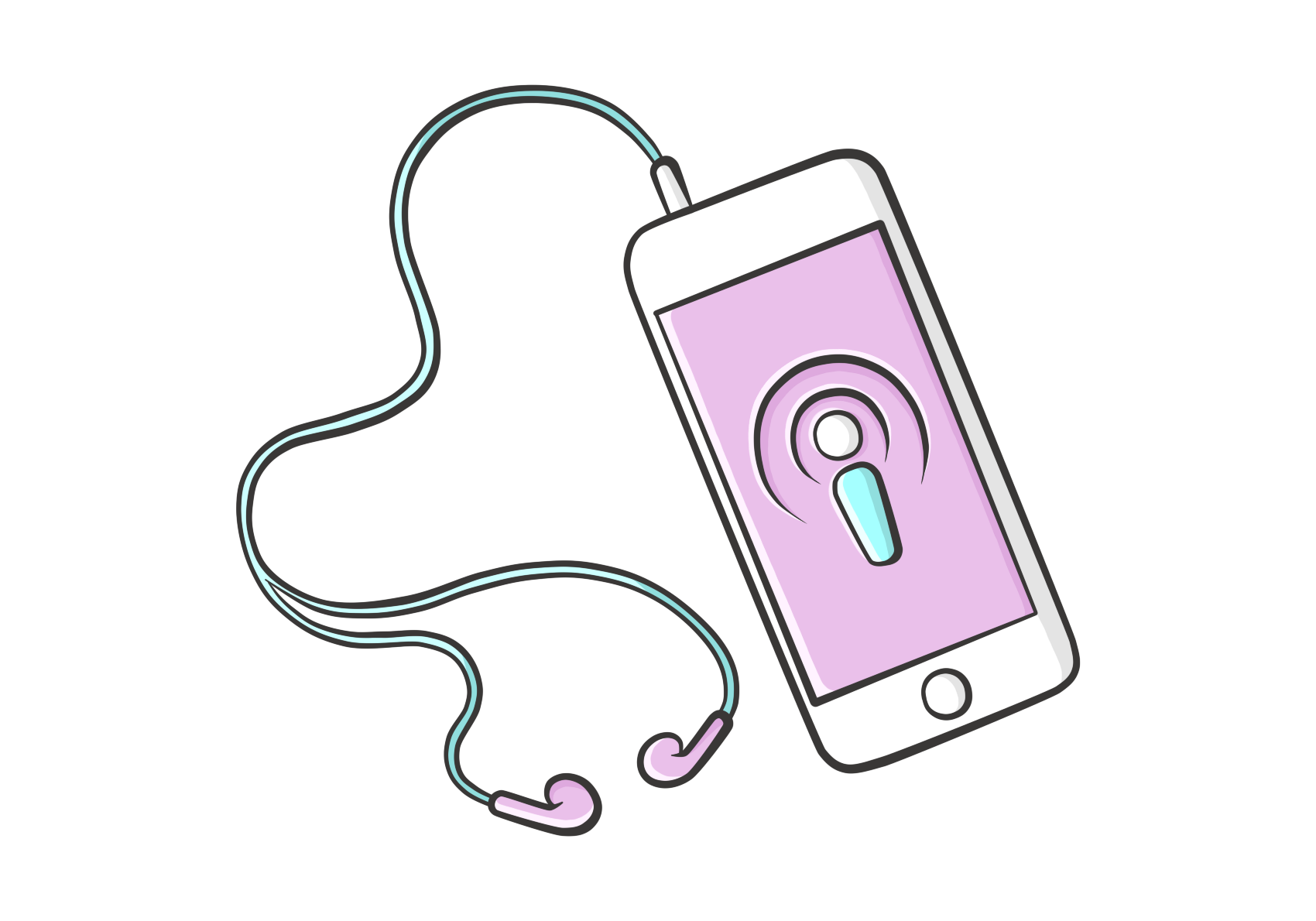How to improve pronunciation in english
How to improve pronunciation in english
10 tips for perfect English pronunciation
Accurate pronunciation is an important part of learning any language, and especially when you’re learning English. The way your speech sounds can have a big impact on whether or not people understand what you are saying and their initial impression of you. The tricky thing about pronunciation is that it not just a question of acquiring knowledge, it’s a physical skill that you need to practise regularly.
How to improve English pronunciation
There are no shortcuts to perfect pronunciation, however there are some ways you can practise more effectively and improve your skills faster. Follow our ten top tips, start improving your pronunciation today and take a step closer towards your goal of perfect English pronunciation.
What is your English level?
Take our short English test to find out.
Listen to yourself
It’s often difficult to hear pronunciation errors in your own speech because you are concentrating actually communicating rather than the sound you are making. If you can’t hear your pronunciation problems, it’s tough to correct them. Try recording your speech with your smartphone or PC and making a note of specific areas you need to improve on.
Slow down!
Many English learners think that speaking fluently means they need to speak fast. This is wrong. Speaking too fast reinforces bad habits and makes the speaker sound nervous and indecisive. Speaking slowly will give you time to breathe properly and think about what you want to say next. Because it gives you time to think while you are speaking, you’ll feel more relaxed and be able to concentrate on making your English sound fantastic.
Picture it…
Close your eyes and think about how to make a sound before saying it. Visualize the positioning of your mouth and face. If you have studied with the phonemic chart, think about the sound you are making and how it relates to other English phonemes. If you have used diagrams of the mouth and tongue, think about the shape you need to make inside your mouth if you want to make the sound correctly.
Get physical!
Pronunciation is a physical skill. You’re teaching your mouth a new way to move and using different muscles. Focus on difficult sounds each day. Having trouble with ‘th’? Put your tongue between your teeth (don’t bite down) and blow air out of your mouth. Feel the air move over the top of your tongue.
Watch yourself
Stand in front of a mirror to see the placement of your tongue, lips, and shape of your mouth when you make certain sounds. Compare what you see with a video of a native-speaker saying the same thing.
Copy the experts
There’s no replacement for learning pronunciation from the experts – native-speakers. So listen! Listen to English radio programs and watch television and movies in English. Imitate what you’re hearing – even if you’re not sure what they’re saying yet.
Practice English alone
Pronunciation problems persist because we’re afraid to make mistakes. Create scenarios – meeting someone for the first time, ordering at a restaurant, asking for directions – then act out the dialogue by yourself. Don’t be shy.
Find a language buddy
Getting feedback from an outside observer is crucial. Find a friend who’s also interested in improving their English. Try exchanging recorded messages so you can listen closely to each other’s pronunciation.
Pay attention to intonation and stress
Good pronunciation is more than just mastering individual sounds. It’s also understanding intonation (the rise and fall of the voice) and stress (some sounds in words and some words in sentences are louder or clearer than others). Read poems, speeches and songs aloud, concentrating on the word stress and intonation.
Sing a song!
Learn the words to popular English songs and sing along. Singing helps you relax and just get those words out, as well as helping your rhythm and intonation. Because you don’t need to concentrate on constructing sentences for yourself, you can concentrate on making your pronunciation sound great!
Give each of these tips a try next time you have a chance and find out which of them works best for you. Remember, none of them is an instant fix but they will all help you reach your goals as part of regular practice. Are you ready to improve your English pronunciation?
Learn English is easy and fun with our free resources. Share it!
What is your English level?
Take our short English test to find out.
10 Strategies to Learn English Pronunciation
When learning English, what you see isn’t always what you hear.
For example, the words tough (“tuff”) and though (“thoh”) differ by only one letter, but sound completely different.
Confusing as it may be, using correct English pronunciation is essential for being understood by others.
In this post, you’ll find 10 great ways to improve your English pronunciation skills.
Contents
Download: This blog post is available as a convenient and portable PDF that you can take anywhere. Click here to get a copy. (Download)
Why Should You Practice English Pronunciation?
The reasons for practicing pronunciation are numerous and significant:
10 Simple and Useful Strategies to Master Your English Pronunciation
Mastering English pronunciation may be the goal, but that doesn’t mean that there’s only one way to reach it. As with everything else in life, everybody has their own way to accomplish their goals. No matter your needs and wants, these strategies will get you there.
1. Know What You Want to Sound Like
English uses many diverse sounds. The pronunciation of English can vary dramatically from one region to the next. For example, the United Kingdom may be relatively small in size, but it’s rich with different English accents that carry their own personalities, as seen here:
Depending on where you go and how long you’re going to be there, the first step to take is to understand how the locals sound. Practice sounding like they do. This will help you fit in and fully understand what they’re saying.
Whatever English accent you choose to study, you can also focus on which sounds make it unique. For example, to learn the American accent, put more time into mastering specific sounds such as the schwa sound and the two L sounds.
2. Subscribe to English Websites, Podcasts and YouTube Channels
When it comes to learning languages, the internet is your best friend. It contains an extremely wide variety of conversational English resources that you can follow at your own pace, even if you’re still a beginner with English.
There’s a lot of content for learners out there, which can help you find what works best for you. Some YouTube channels have super-short videos on how to correctly pronounce difficult words.
Reading a book along with its audiobook can also work quite well because it lets you see how an experienced reader would say the words in the text. This is a great way to pick up new vocabulary, get a glimpse into the culture and improve your pronunciation—all in one spot.
Similarly, there are lots of podcasts out there on just about every subject imaginable, and many of them offer transcripts of each episode, so you can read along as you listen. Many podcasts cover hot (popular right now) and sometimes controversial topics in the English-speaking world!
Another resource you could try is FluentU, which bases its English lessons on native video content. As you watch a clip from the authentic, hand-picked media library, the subtitles allow you to check the definition of any word. With a tap, you can also see sentence and video examples for that word.
The program’s multimedia flashcards also help you remember the correct pronunciation of the words you’ve learned. Plus, you can do quizzes to improve your speaking, listening and other skills based on what you’ve just watched.
FluentU has a web platform, as well as iOS and Android apps.
3. Focus on Words That Are Giving You Trouble and Break Them Down
Have you bumped into a long, confusing mass of letters? Are you forgetting when to say some words differently?
Whenever you hit a wall and don’t know how to pronounce a weird word, just stop, take a break and pay close attention to that word’s features. Features include its spelling, syllables and meaning.
What you’ll want to do is take that long and complicated word and break it apart into pieces. Then slowly put it back together.
For example, one of the most commonly mispronounced words in the English language is February. People keep pronouncing it as Feb-yu-airy. If you look closely, you’ll notice the r in the middle, and breaking it down reveals that it’s actually pronounced Feb-ru-airy.
You should look back to #1 for these words, too. Americans don’t ever pronounce that r in February. Regional pronunciations may not necessarily be proper English pronunciations.
Another common mistake is saying a letter out loud when it should be silent. For a lot of words ending in e like done, horse, and fire, you won’t have to pronounce the e at all. Still, a lot of English speakers might end up still saying the e, especially when they’re beginners.
Here are more words that are mispronounced a lot, including comfortable and Wednesday:
Keep in mind, that words in English aren’t always spoken as they are spelled, so practice these words slowly. If you still have difficulty breaking words up, then this guide will help.
4. Read Out Loud and Record Yourself
There are actually a lot of ways to practice your English pronunciation even when you’re on your own! One of the best ways to do this is to record yourself reading and speaking loudly and clearly, which helps you track your improvement.
Once you get over the sound of your own voice (we all hate the way we sound when recorded), you’ll find yourself making greater strides than you would otherwise. When you record yourself speaking English months or years in the future, then you’ll really hear how much you’ve improved.
You can also test out minimal pairs, which have similar sounds. These are words in English that are almost pronounced the same except for one sound, such as low – law and cut – cat, and they’re especially useful for practicing vowels. Try going through this list of minimal pairs while recording yourself:
Practicing solo doesn’t mean you can’t get feedback, either. There are interactive English pronunciation apps that you can study with. For example, ELSA Speak uses voice recognition technology to point out where you can improve your speaking.
5. Listen Closely to the Rhythm and Intonation of Words
Everything in life follows some form of organization. Life has a strong rhythm. Otherwise, everything would random and unorganized.
Just as we memorize and understand songs and other pieces of music by listening closely to the lyrics and other features, we can also master difficult words by listening carefully to their rhythm and the way certain syllables sound.
Words change with emotions, and listening to how words are spoken will also tell you more than just their meaning.
The rhythm of words affects their meaning, and using the right intonation and rhythm is a key part of speaking English fluently. Depending on which part of a word is stressed, and where it’s placed in a sentence, it can either be a noun or a verb.
Understanding this could even make a word’s pronunciation clearer. For example, the words refuse and refuse. If it’s heard as REH-fyuz, then we’re talking about garbage (noun), but if it’s heard as reh-FYUZ, then it means saying “no” or declining something (verb).
These two words are called heteronyms—they have the same spelling but different pronunciations. In this case, they differ only in syllable stress, but it’s enough to change the meaning completely.
A lot of English learners actually get confused with rhythm and intonation, as well as heteronyms:
The key here is to listen carefully to how words are used. Break them down when practicing them until you’re comfortable enough to use them in conversation.
6. Communication Is Key: Practice with Native Speakers
The best way to speak English like a native is to actually speak with one. Whenever you’re in class or taking a walk in the park, make sure that you’re only speaking English.
If you don’t know any native speakers living near you, don’t let that get in the way of your progress. As I mentioned earlier, there are lots of great forums, websites and apps that allow language learners to connect and teach each other.
To find language exchange partners online, you can try HelloTalk and Tandem. For working on your spoken English specifically, there’s Lingbe, which connects you with native speakers from all over the world over voice call. italki is also great for practicing your English in a more organized tutorial setting since you can book video sessions with thousands of native English speakers.
7. Watch the News for Clear English Pronunciation
While you may not love to watch the news all the time, you can use it as a great tool for mastering your English pronunciation. Newscasters tend to speak slowly and clearly to deliver their messages.
This video from Rachel’s English studies English pronunciation based on how newscasters speak:
Watching the news helps to put English words in their usual contexts and allows you to hear what they sound like in real life. Plus, news shows use lots of pictures and videos to help make their messages stronger, which will make things easy to understand for you. If subtitles are available, this makes things even better.
A good website to use would be the BBC for British English or CNN for American English.
8. Don’t Make Assumptions Based on a Word’s Spelling
As I mentioned earlier, English is known for having words that look way different than the way they’re spoken. If your native language is like Spanish, where what you read is what you hear, then learning how to say some words in English may become a challenging puzzle—remember though and tough?
That’s why you shouldn’t bring what you know about one language over to another. Reading English as you would in Spanish will only confuse you.
You can see this with homophones, where two words have the same pronunciation but different meanings, such as see and sea as well as bye and buy. Vowel sounds in English can have different pronunciations based on where they are in the word, and they may even be silent.
English also has voiced and unvoiced consonants, where you have your mouth and tongue in the same position but the sound manages to be different. An example of this would be the “th” in teeth vs. the “th” in mother. With mother, you’re making a sound with your vocal cords for the th, while with teeth, you’re just puffing air out.
Because of these subtleties in pronunciation, there’s a lot about English that can be mind-bending! So keep an open mind and remember that there are a lot of English pronunciation rules that might feel strange at first.
9. Check Dictionaries and English Pronunciation Guides
When things get tough, dictionaries are always there to help. It’s always good to keep one handy, especially if you have a smartphone. The Merriam-Webster dictionary app is a great example that includes a simple but very effective pronunciation guide for every word.
While these are helpful and will tell you what you need to know, studying the International Phonetic Alphabet (IPA) will tell you exactly how to pronounce words. This is going to be challenging but once you master IPA no English word will be too difficult. You can also check out this vowel pronunciation guide for detailed explanations about each vowel sound.
10. Slow Is Smooth, Smooth Is Fast
It’s easy to get excited and start speaking quickly once you learn how a word is pronounced, but the best thing to do is to be patient and keep practicing that word slowly until you can say it perfectly. Your friends and teachers understand this, so don’t worry about sounding funny or speaking too slowly.
With plenty of English pronunciation resources out there, you have all of the information you need to work on your speaking skills. Learning to speak English fluently is all about the journey and not just the end, so take your time and enjoy the ride!
Other Great Resources
Download: This blog post is available as a convenient and portable PDF that you can take anywhere. Click here to get a copy. (Download)
How to Improve English Pronunciation in 8 Easy Steps
So you want to work on improving your pronunciation of English words. Let’s be honest: compared with most other languages, English is difficult to pronounce. And unlike most other languages, you can’t always tell what a word should sound like just by looking at it. However, don’t worry! If you want to sound like a native English speaker, there is hope for you. These eight steps will help you perfect your English pronunciation.
1. Observe and imitate native English speakers
Believe it or not, your ears are an important tool to help you sound like a native English speaker. Listening to people speak is one of the most important things you can do to improve your English pronunciation. Just as babies learn from listening to their parents speak, you learn from listening to people around you speak.
Ears are a little bit like muscles. When you listen to someone speaking English, you are working out your ear muscles. They get to practice hearing the unfamiliar sounds that English speakers make. The better you get at hearing certain sounds, the easier you can make them yourself. This is an essential step in language learning.
Last Updated May 2022
English speaking course. 77 Hours of English language speaking, English listening practice. 1000 English language words | By Logus Online
Here are some ways to practice any time:
2. Decide which kind of English is right for you
When you practice listening to English speakers, listen for accents. People speak English all over the world, and every region has a slightly different way of speaking English. Can you tell where people are from by listening to them talk? Do you want to sound like you’re from England, the United States, Canada, Australia, Pakistan, or somewhere else?
Every English-speaking country pronounces some words a little differently. They also use different types of inflection for making statements or asking questions. There are even differences in how lax the vowels are from one place to another. Pay close attention to accents and pronunciations of people who speak the kind of English you wish to adopt.
For these reasons, you have to pick which kind of English is right for you before you start working on your pronunciation. Once you’ve selected a region, you might even look into different accents you wish to practice. For example, in the United States, the Texas accent and the Minnesota accent are very different. In England, people who belong to different social classes have different accents. Deciding which accent you prefer will help you refine your goals. If you think American English is right for you, check out this article on how to learn American English and master the American accent on Udemy.
3. Write things down
Keep a notebook to record any English pronunciation problems you have. This will make a good practice guide. You can also use it to ask others how they would say a particular word. You can turn it into a game: write down the words that give you trouble, and cross out the ones you’ve mastered. The proof of how you are progressing will be right in front of you.
Keeping a notebook of hard-to-pronounce words has another use: it’s a good way to see patterns. You might find that the long ‘o’ sound gives you trouble. Or maybe a certain group of consonants is tough for you. Perhaps you struggle with telling the difference between the voiced and unvoiced ‘th’. Knowing where you need help the most allows you to focus your learning. If you also want to improve your English grammar, check out this article on English grammar 101.
4. Learn how to pronounce vowels correctly
It’s usually possible to tell how a consonant will sound in English, but vowel sounds are a bit more tricky. The same vowel can sound different in different words. And it’s possible to make the same sounds with different vowels. This can be very confusing! But don’t worry: here are some tips to help you pronounce vowels correctly.
English has lax and tense vowels. These vowels are sometimes called long and short vowels. Lax vowels are long, and your jaw moves while you’re making a law vowel sound. Tense vowels are shorter, and your jaw stays still when you’re making a tense vowel sound.
Each word has one stressed syllable. The other syllables get reduced. That means that they are less pronounced than the stressed syllable. For example, look at and listen to the words ca-NA-ry and the word CAN-ne-ry
Pay attention to the syllables that are not stressed in each word. Do you notice anything? The unstressed syllables all sound almost the same, like uh. That uh sound is called the schwa.
In many words in English, unstressed a and o sounds are schwas. For example, banana is pronounced buh-NA-nuh; potato is pronounced puh-TAY-tow
Rules around pronouncing vowels in English can seem very complicated and confusing. Don’t worry! You can learn them without trying by listening to English-language music and podcasts and by watching English-language movies and shows.
Vowel sounds can be a challenge to English learners because you can’t always tell what they’re supposed to sound like just by looking at them. That’s why it’s important to practice. Make sure that you pick which kind of English you want to speak before you start working on vowel sounds. Different countries pronounce vowels differently, and you want to make sure you learn the correct pronunciation! If spelling gives you trouble, check out this article on spelling rules.
5. Move your mouth right to create lax vowel sounds
Have you noticed that English vowel sounds tend to be looooong? That’s because many English vowels are lax. The sound of the vowel changes as it’s being made. Making sure your vowel sounds are lax will help you improve your English pronunciation.
Here’s an example of the same sound (may) made using lax vowels and tense vowels:
When your vowels are lax, your jaw and your mouth keep moving when you pronounce the vowels. This changes the sound of the vowel as you make it. English is full of these sounds, and learning to relax your jaw when you’re speaking English will help you sound more natural.
Here are some examples of English words that use lax vowels: todAY, bAby, cOAt, and mOUntain.
In any language, there are two types of vowels: tense and lax. If you want to find out which type of vowel your native language uses, simply put your hands over your jaw and feel how it moves when you’re speaking. Does your jaw stay still while you’re making vowel sounds? Then your language uses tense vowels. Does your jaw move at any point while you’re making vowel sounds? Then your language uses lax vowels.
If your native language doesn’t use lax vowels, then you might find them difficult to say at first. But don’t worry! You’ll get used to it. To practice, stand in front of a mirror, and place your hands on your jaw. Find a short word that has a lax vowel. Many people find that it’s easiest to start with the ‘ay’ sound. Watch your mouth, and feel your jaw as you say the word.
6. Learn how to find and use word stress
Word stress is what we call the emphasis we place on a certain syllable of a word. For example, in the word banana, the middle syllable is stressed: ba-NA-na.
Word stress is an important part of English pronunciation. Having this information is a big help in pronouncing words that are long or scary-looking, such as isosceles (i-SO-sce-les) or Episcopalian (e-pis-co-PA-li-an).
When you’re creating a list or flashcards of English vocabulary, it’s a good idea to mark where the stress is on each word. Doing this will help you learn the pronunciation at the same time as the meaning of new words.
One of the hardest things about learning English pronunciation is figuring out where the stress is on words, but don’t worry! You can do it. Here are some tips that can help:
Word stress is one of the things that makes English a difficult language to learn. There are rules, but there are also a lot of exceptions. So don’t be too hard on yourself if you say a word incorrectly at first. A lot of native English speakers can’t pronounce many long, tough words. If you say a word wrong, add it to your vocabulary list or your flashcards, and mark where the stress is. Then review it along with the rest of your vocabulary until you’re comfortable pronouncing it. You can do this!
7. Use inflection like a native speaker
Inflection is what your voice does while you’re speaking. By using inflection, you show that you’re asking a question, or making a statement, or dozens of other things. It’s amazing how much you can say just by using inflection! Every language uses inflection. Your English-speaking skills will improve if you pay attention to what your voice is doing while you’re speaking. These tips will help you use inflection like a native speaker:
Listen and learn. Listen to English podcasts, TV shows, and movies. Pay close attention to how speakers are using their voices. What does it sound like when someone is asking a question? What do you notice about the voice of an angry person? Record yourself imitating the speakers’ inflection. Play the recording back and compare it with the native speaker.
Pick a short, simple sentence. For example, Maya is from Dallas. Now practice saying it in as many ways as you can. Start by saying Maya is from Dallas as a statement and as a question. Then try saying Maya is from Dallas as if you don’t think it’s true, as if you’re surprised, and as if you’re trying to convince someone that it’s true.
When you start working on inflection, it’s going to feel fake. You might think that you sound like you’re pretending. Don’t worry! It’s normal to feel this way at first. You’re used to using inflection, but not in the way a native English speaker would. The more you practice, the more you’ll get used to it.
Remember, before you start practicing inflection, pick one kind of English. British English inflection sounds very different from American English inflection. The same goes for Canadian English, Indian and Pakistani English, and Australian English. Online English tends to be American English. Pick which kind of English you want to speak.
Once you start practicing inflection, you’ll be amazed at how much people communicate without using actual words. English language learners sometimes ignore inflection because it is non-verbal, but this is a mistake. If you want to sound like a native speaker, correct inflection is as important as correct pronunciation.
8. Be ready to laugh at yourself
If you are like most language learners, you probably think that speaking is the scariest part. A lot of English learners worry that others will laugh at them if they mispronounce a word. It’s also very frustrating when people don’t understand what you’re saying. Don’t let these things stop you! Here are some tips to help you be more comfortable when speaking English:
Practice in a low-pressure setting. If you don’t feel ready to practice with people yet, start by yourself. Listen to TV shows, podcasts, and movies. Pause the show, and repeat what you hear. Record yourself repeating what you hear the actors say, and replay the recording. Compare the recording of your voice with the sound of native English speakers. Pay attention to where you sound different.
Get silly! Practice speaking in front of a mirror. Make faces to match your inflection. Don’t be afraid to exaggerate your sounds. Pretend that you’re an actor practicing for a part.
Practice conversation with people you trust. If you ask native English speakers, encourage them to correct your pronunciation by repeating the words you say incorrectly.
As you practice your lax vowels, place your hands over your jaw. Pay attention to how much your jaw moves when you use lax vowels. If your jaw is not moving, try relaxing it.
If you already live in an English-speaking country, turn errands into practice sessions. For example, you can set a goal of speaking English to at least three strangers while you’re out. If you’re nervous, it’s helpful to think about what you will say before you leave the house. Even if you’re just asking “What time is it?” to three people, you’re making progress!
English pronunciation can sometimes be challenging. With these tips and tricks, you’ll sound like a native speaker in no time! If you’d like to work on your everyday English, check out this article on conversational English.
How to Greatly Improve Your English Pronunciation in 15 Steps
Learning to pronounce English words correctly can be one of the hardest parts of learning English, especially if there are sounds that your native language doesn’t have or you tend to get tripped up on tricky vowel pronunciation
Just see how “way,” “weigh” and “whey” are all said the same, for example, while “comb,” “bomb” and “tomb” are all pronounced differently.
That’s why I have 15 tips for you, to help you pronounce English words better.
Contents
Download: This blog post is available as a convenient and portable PDF that you can take anywhere. Click here to get a copy. (Download)
1. Learn to listen.
Before you learn how to speak, you’ll need to learn how to listen. Some sounds can be hard to tell apart when you’re listening. Did the speaker sleep or slip? Did he hurt his chin or his shin? If you can hear the difference, it will be easier to speak the difference.
There are many guides to get you started in learning to listen. We have some great articles here about learning to listen from movies, songs and music and podcasts. You can also find listening exercises online, like this one from Rong-chang.
The pronunciation practice at Many Things is really slick, especially its huge selection of lessons on minimal pairs. Minimal pairs are pairs of words like sleep and slip, that are only different by one sound. You can click on each word to hear a complete sentence with each, then quiz yourself in the second box and click the correct answer.
2. Learn with the Best English Pronunciation Dictionaries Online
You probably already use a dictionary to translate English words, but online or digital dictionaries can offer many additional benefits, including pronunciation guides. These kinds of dictionaries can be one of the most useful tools you can have for practicing English pronunciation—best of all, they’re available online for free!
Here are some of the best pronunciation dictionaries you can find and use online.
Google Translate
You may have already used Google Translate during your English studies. Google Translate is an easy-to-use translator that also provides pronunciation guides for single words and whole sentences. As soon as you get to Google Translate’s interface, you can look up any word and it will give you a number of definitions and an audio pronunciation.
If you’re just looking for pronunciation help, type in Google search “how to say (insert word).” You will get both an audio pronunciation guide (which you can slow down) and a visual guide that shows how your mouth should move when saying the word.
FluentU
Many dictionaries don’t have pronunciation recordings made by an actual native speaker, and most don’t give you good examples of how to use words in context. Dictionaries can also be inefficient to use since you can’t know which definition out of several possibilities you’re looking for.
FluentU’s video and audio dictionary attempts to correct these problems. The program has many videos that give you context and let you hear words in natural situations, like in movie trailers, commercials, inspirational talks, music videos and more. It uses these videos to support its dictionary and give you specific definitions right from the subtitles of a video.
For example, when I did a search within the program for “date,” here’s what the program showed me:
But if I’m watching a clip from “Friends” and I want to know what Monica means when she says “date,” I can hover my mouse over the word and see the correct definition:
If I click on the word, I can even see other videos that use the word with that same meaning for more examples. I can also add the word to a vocabulary list as a flashcard.
FluentU provides native pronunciation at every step of the way: in the transcripts, subtitles, example sentences and even in the quizzes that follow videos and review flashcard decks.
Forvo
Forvo is a user-generated pronunciation guide in which native speakers submit audio clips of themselves saying certain words or phrases. You can look up a word, learn its definition and listen to how different people from different places say it. There are also pronunciations for whole sentences and phrases as well!
Forvo is well-liked because real people are the ones speaking the words. You can also see how certain speakers are ranked in their pronunciations; the pronunciations with the most likes may be the ones you should focus on.
Because the audio submissions can come from all over the world, you can listen to how the same word is said in different regional accents; the importance of this will be discussed in more detail later on.
Merriam-Webster Dictionary
Merriam-Webster is also known as “America’s most useful and well-known dictionary.” It’s no surprise then that it’s here on this list! The dictionary offers detailed definitions and information about the words you look up, as well as clear, good-quality audio pronunciations.
You can also download the free app version of this dictionary, which comes with some special features. With the app, you can search for words by speaking them out loud into your device’s microphone—this is great for when you don’t know how to spell a word, but it’s also good speaking practice. If there are any words that interest you, you can save them into your own “favorites” list.
WordReference
WordReference is a helpful multilingual dictionary. It supports translations for a lot of languages, so if your native language is included, you can find words in English by writing it out in your language, or search for English words and get translations in your language. This is very helpful when you want to make sure you’re getting the right translations.
WordReference also lets you listen to audio pronunciations in different English accents, more than many other dictionaries. Most online dictionaries may just offer one British pronunciation and one American pronunciation, but WordReference also specifies other specific accents such as Irish, Scottish, American Southern and even Jamaican. After you look up a word, you can click on the “Listen” button to pick the accent you want to hear and change the speed of the audio.
Oxford Learner’s Dictionaries
Oxford’s online dictionary, provided by the well-respected Oxford University Press, is a great resource for beginner learners. Sometimes, dictionaries can offer a lot of information that can make things confusing—Oxford’s dictionary takes out a lot of the confusion and gives you the main things you need. The definitions are written in an easy-to-understand manner and you get plenty of example sentences that show you how the word is used.
The dictionary has two pronunciation options: you can listen to the word spoken in British English or in American English. The pronunciations are done by different male and female humans (not robots!), which can be great for your listening practice.
Collins Online Dictionary
This dictionary offers most of what the other listed dictionaries have, but with some extra audio features. Once you look up a word, Collins dictionary also provides audio pronunciation of the word in its different forms (such as in past tense or participle form). There are even audio pronunciations for the example sentences that show the word in use, which can be very useful when you want to practice speaking in whole phrases.
Collins dictionary provides slightly different definitions: the first “Collins” definition, the second “British English” definition and the third “American English” definition. With each definition section, you can hear either the British or American pronunciation of the word. In some cases, there may even be a video clip of a real person saying the word!
One thing to note is that the example sentence pronunciations are done by a text-to-speech robot instead of a human. However, the voice doesn’t sound too unnatural or strange, so you can still find these pronunciations helpful!
A dictionary is a study tool that you’ll always want to have around when you’re studying and practicing English. If you ever learn a new word and aren’t sure how to pronounce it, then a dictionary with audio functions can give you immediate help.
3. Notice how your mouth and lips move.
When you speak, you move your mouth. How you move your mouth affects how you pronounce a word.
The first step to correcting your mouth shape is to notice it and pay attention. There are a few ways you can check that your mouth and lips are making the correct shape:
Watch other people and notice the shape their mouth and lips make when they talk. Try following along with your favorite TV show or movie. Can you repeat the faces and sounds that the actors are making?
There are guides and pictures online that will help you learn how to move your mouth. Sounds of English has some good explanations for pronouncing specific words. This guide is for people making 3D animations, but the pictures are a great start to understanding how your mouth should look when you speak.
You can also find great videos showing how to properly form the mouth and lip shapes when you’re speaking, like this one from Georgie Harding:
Feeling stiff? Loosen up your mouth and tongue and get ready to practice your speech with this fun warm-up exercise from Howcast!
4. Pay attention to your tongue.
The main difference between rice and lice is in your tongue. When you speak, you move your tongue to make sounds. You probably didn’t even notice that, since you do it without thinking. To improve your English pronunciation, it’s a good idea to check what your tongue is doing.
Some difficult sounds for non-native speakers to make are the letters “L” and “R,” and the sound “TH.” Pronouncing them correctly is all in the tongue!
Now that you know where to put your tongue, can you hear the difference?
For a more detailed explanation on how to make those three sounds correctly, watch this video from the Woosong University:
There are many other pronunciation guides on YouTube, so look around for one that helps you master the sounds of the language!
If you can’t figure out what to do with your tongue to make the right sound, try asking someone. Ask them to say a word with that sound, then tell you where they put their tongue. They probably never thought about it before, either!
5. Break words down into sounds.
Words are made up of syllables, or parts. The word “syllable,” for example, has three syllables: syl-la-ble. Turning words into parts can make them easier to pronounce.
To check how many syllables a word has, place your hand flat just under your chin. Say the word slowly. Each time your chin touches your hand, that’s a syllable.
You can even write the word down in parts. Leave a space or draw a line between each syllable (every syllable should have at least one vowel: a, e, i, o, u, y). Now try saying the word. Say it slowly and pause after each syllable. Isn’t that easier?
If you’re having trouble with syllables, you can check out How Many Syllables. This website shows you the syllables in any word you look up, and even shows you how to pronounce it.
6. Add stress to sounds and words.
English is a stressed language. That means some words and sounds are more important than others. You can hear this when you say a word out loud. For example, the word “introduce” is pronounced with a stress at the end, so it sounds like this: “in-tro-DUCE.”
Sometimes where you put the stress in a word can change the word’s meaning. Say this word out loud: “present.” If you said “PREsent,” you are talking about a noun that means either “right this moment” or “a gift.” If you said “preSENT,” you are talking about a verb that means “to give or show.”
There are rules for where the stress goes in each word. Here’s one rule:
That’s just like the word “present.” Here’s another example: the noun “ADDress” is the place where you live, and the verb “addRESS” is to speak to someone.
If this all sounds too complicated, don’t worry about memorizing all these rules—the best way to learn is by listening and practicing. Remember that most native English speakers don’t know the rules either, they just say what “sounds right.” With enough practice, you can get what sounds right too.
This video about six common English mistakes goes over word stress in detail in the first point:
Keep watching the rest of the video for other useful tips for avoiding some of the most common English learner mistakes.
Watch this video from mmmEnglish for more information about syllable stress in English:
Sentences have stresses too; some words are more important, and are said with more clarity and strength than the rest of the sentence. Try reading this sentence aloud: “I ate some toast with butter in the morning.”
The sentence should have sounded like this (the bold words are the stressed ones): “I ate some toast with butter in the morning.” Notice how you slow down every time you get to an important word, and quickly pass over the less important ones?
Keep practicing by reading out loud, having conversations and listening well to where others place stress when they speak.
7. Ask yourself which dialect of English you want to learn.
When you speak English, do you want to sound like you’re from America or England? Australia or New Zealand? Maybe Canada or South Africa.
Choosing your dialect of English is one of the first decisions to make on your English-learning journey. First of all, it will determine much of the vocabulary you learn. For example, English speakers in Ireland use different terms for certain things than English speakers in the United States—especially when it comes to slang.
Second, this choice will drastically affect your pronunciation.
The two most common types of English for ESL students are probably American English and British English.
Choosing which type will affect how you pronounce sounds. For example, in America, the “r” sound at the end of a word is much harsher.
And when a “t” appears in the middle of a word, Americans often pronounce it as a “d,” while the British pronounce it as a hard “t.” Think of words like “water,” “whatever” or “lighter.”
That’s just the beginning. I could go on and on!
Choosing between American and British English will also drastically alter how you say words like “aluminum,” “schedule,” “garage” and “mobile,” just to name a few.
Once you’ve chosen which dialect of English you want to take on, base your studying methods and tools on that decision.
For instance, if you want to learn American English, you wouldn’t want a British language exchange partner, would you? You’re going to emulate the sounds you hear, so you want to find people and resources that will feed you the right accent.
Watching movies and TV shows are fantastic ways to learn English and pick up accents. I particularly love watching TV series, because you have hours of content, and you learn to understand characters’ accents over time.
If you’re looking for a British TV show, I recommend “The Crown,” a drama about Queen Elizabeth II. I also love “The Great British Baking Show.” This reality show is lighthearted and fun to watch, and you’ll pick up modern slang.
How about English shows? “Friends” is a classic option for learning English, and many Americans will love to talk about it with you. “Brooklyn Nine-Nine” is a sitcom that’s currently on the air that centers around cops (policemen and women) in New York City.
You can also find learning materials that expose you exclusively to your desired dialect. Take apps, for example.
If you want to learn British English, LearnEnglish Sounds Right will provide an English pronunciation guide for people wanting to attain a British accent, and you can download it for your iOS or Android device.
ELSA Speak: English Accent Coach is a great app for learning how to speak like an American. Download it at the Apple or Google Play store.
You can also use resources besides apps, and they can be just as useful in helping you get the dialect you want.
As you can see, your choice of dialect will affect every other decision you make regarding English pronunciation!
8. Exaggerate certain sounds (make them bigger).
Anyone who has acted in the theater knows about exaggeration.
Have you ever been on stage and made a facial expression or reacted to someone else’s line, only for your director to yell, “Do it bigger!” On the stage, you have to exaggerate to appear normal to the audience.
English pronunciation is the exact same way.
Depending on what your native language is and which dialect of English you’re studying, you’ll find certain sounds to be difficult. Actually, I think every ESL student I’ve met who is learning American English struggles with the American “r” sound!
So how do you master a tricky sound like this?
Exaggerate. Exaggerate the sound until you feel ridiculous. Exaggerate until you’re sure it’s so over the top that people are going to make fun of you.
Are you exaggerating to the point that you feel stupid? Then you’re probably on the right path.
If you’re super over the top in your pronunciation, you’ll become more and more aware of the shape of your mouth and the placement of your tongue when you make that sound.
Believe it or not, exaggerating these sounds will likely make it easier for native speakers to understand you. You may think you sound corny because you aren’t used to making these sounds. But for a native speaker, you’ll sound way more authentic than a foreigner who is shy about these sounds.
What’s the goal? Eventually, you will be so used to the shape your mouth makes that you won’t be conscious of exaggerating, and you won’t be thinking of English pronunciation rules as you speak. And that’s when you know you’re on the path to fluency.
9. Write out difficult words by their sounds.
Having trouble with certain words? Try writing them out.
Let’s say you’re struggling with the word pizza. Write it out phonetically: piːtsə.
When you look at the phonics, you can see that the double-z is pronounced like a “ts.”
Try making flashcards. Write the word on one side, then spell it out phonetically on the other side. If it helps, you can highlight the letters on each side that you’re testing yourself on. (This can be especially useful for visual learners!)
Writing things out phonetically can be difficult, especially if it’s in your second language. If you need help, visit EasyPronunciation.com. Type in the word or sentence you need help with, and the website will transcribe it phonetically for you. (Bonus—it lets you choose between American and British English!)
10. Write down what you hear.
Want to master English pronunciation? Sit down and listen. Listen to someone speak and write down what they are saying.
You might be thinking, “Hey, I’m here to practice English speaking, not listening!”
However, listening is an excellent way to improve English pronunciation.
In my high school French classes, we had to take dictation (write what the teacher said) every week. The teacher spoke for 20 minutes, and we had to write down exactly what she said. Trying to decipher her accent and write down what we heard made me understand French spelling and pronunciation better.
Don’t have an English teacher who wants to talk aloud for 20 minutes at your disposal? There are plenty of ways to find a resource!
EnglishClub is a great dictation website, regardless of your learning level. Choose from elementary, intermediate or advanced dictation.
You’ll listen to the dictation once at normal speed. Then a second time at a slowed-down speed so you can write it down. Listen for a third time at a normal speed. Then check your answer.
YouTube also has many options to practice your listening and writing skills. Get started with Speak English with Vanessa’s Dr. Seuss dictation video:
You can also watch a scene from a TV show or movie and write down what you hear. If you’re watching on a service that provides subtitles, play the scene again with subtitles to check your work.
If you recognize difficult sounds when you hear them, it’s likely that you’ll learn how to say them.
11. Practice with tongue twisters.
When speaking English, do you struggle with sounds that are similar? Like “sh” and “ch,” “t” and “th” or the short and long “e” sounds?
Don’t worry, you’re not the only one. Not by a long shot.
Wondering how to improve your English accent in a way that’s a bit more entertaining? Tongue twisters can be a fun (but tricky!) way to practice differentiating between two sounds.
Tongue twisters are poems that can be hard to recite because a lot of the sounds are similar. In English-speaking countries, people say them just because it’s funny when you mess up and sound silly. And it’s satisfying when you finally master the poem!
Here are a few examples of popular, effective English tongue twisters:
Want to practice the “s” and “sh” sounds? Here’s one:
She sells seashells by the seashore.
That’s a very famous tongue twister. But once you’ve got that down, try adding on a few less well-known lines:
The shells she sells are sea-shells, I’m sure.
For if she sells sea-shells on the sea-shore
Then I’m sure she sells sea-shore shells.
Alright, now let’s try one to practice the “cl” and “cr” sounds:
How can a clam cram in a clean cream can?
And now one for the “sh” and “ch” sounds:
If a dog chews shoes, whose shoes does he choose?
Want to practice different sounds with tongue twisters? Take a look at this list here.
You can also hear some tongue twisters spoken by a native English speaker on Rachel’s English (and see that even native speakers can have trouble mastering these tricky twisters!):
12. Use pronunciation podcasts and videos.
There are some excellent video and audio guides on English pronunciations that you can use to improve. The English Language Club has videos that show how to make different sounds in English. Rachel’s English has friendly videos on how to speak and pronounce American English in everyday conversations.
If you like podcasts better, Pronuncian has over 200 audio files that help with everything from pronunciation to stress and pitch (how you raise and lower your voice while you speak).
If none of these are what you’re looking for, there are many more to choose from. Find the one that’s right for you.
13. Record yourself.
One way to tell if all your practice is working is to record yourself with a camera. Use a camera and don’t just a sound recorder because it’s important to see how you speak, not only hear it.
You don’t need to download any special software to record yourself; most computers and mobile devices have built-in video recorders. You can use PhotoBooth on a Mac or Movie Moments on a Windows computer. The specific programs change with time (the Movie Moments program, for instance, might not be available anymore by the time you read this) but as long as a computer has a camera, you should be able to record videos with it. Your phone or mobile device also has a video capturing app, usually as part of the camera app.
Compare your recording to someone else saying the same words or sounds. Find a video of your favorite part from a movie, like this clip from “Earth to Echo.” Choose one or two sentences and record yourself trying to match the stress, tone and pronunciation of the video. Then you can compare the two and see what you did differently, and try again.
Ask a friend or watch a video to check. If your pronunciation doesn’t sound the same, ask yourself some questions: Are you moving your mouth the right way? Is your tongue in the right place? Are you stressing the right part of the word? Use everything you learned in this article so far!
14. Practice with a buddy.
As always, “Practice makes perfect!” And it’s easier to practice with a friend. Find someone to practice pronunciation with, either in person or through online communities like Language Exchange or InterPals.
Practicing with a buddy (friend) will give you a chance to try everything you learned, and learn new things from each other. Plus, it’s fun!
15. Speak as much as you can.
If you don’t speak often, you can become nervous when it’s finally time to open your mouth and say something in English.
It’s like playing basketball. You might be good at running, dribbling and passing. But you never shoot the ball.
You know how to shoot the ball. You watch other people do it all the time. But you’ve never done it.
When it’s time to play and you get a chance to shoot, it would be hard. Plus, you’d become so nervous by doing something new in front of other people that your nerves could paralyze you.
It’s the same with speaking English. Not only do you need English pronunciation practice, but you need to get over your nerves so that you feel comfortable speaking in front of others. Nerves can lead to a lot of mistakes, especially regarding pronunciation.
Try making a rule for yourself: You must speak English to yourself at home. To start, try just narrating what you’re doing when you’re cooking dinner or getting ready for bed.
Promise yourself that you’re going to speak aloud for at least a few minutes per day.
Remember, practice makes perfect!
Pronunciation is as important to learning English as vocabulary and grammar. Thanks to these 15 tips, you’ll soon be on your way to pronouncing English like a native.
Download: This blog post is available as a convenient and portable PDF that you can take anywhere. Click here to get a copy. (Download)
Как улучшить английское произношение: руководство к действию
Желаете знать, как улучшить английское произношение? Мы написали эффективное руководство для тех, кто решил довести свое произношение до совершенства. В статье расскажем, с чего начать работу, на что обратить внимание, а также представим полезные рекомендации, которые помогут вам улучшить произношение на английском.
С чего начать работу над английским произношением
1. Определитесь с вариантом английского
Вариантов английского произношения существует много: канадский, австралийский, среднеатлантический и т. д. Однако самые популярные — британский и американский варианты английского. Произношение в этих двух разновидностях одного языка отличается довольно сильно. Усидеть на двух стульях одновременно трудно, поэтому есть смысл остановиться на одном из видов. Как сделать выбор? Послушайте, как отличается произношение носителей языка: американца и британца. Наши преподаватели Scott (США) и Dave (Великобритания) подготовили отрывок из стихотворения The Chaos by G. Nolst Trenité. Прослушайте записи и решите, какой вариант для вас благозвучнее.
Scott
Чтобы убедиться, что вы сделали правильный выбор, советуем почитать аргументы в пользу каждого из вариантов английского в статье «Какой язык учить? Британский английский против американского».
2. Проанализируйте свою речь
Выберите какой-нибудь аудио- или видеоролик с текстом записи. Послушайте, как произносит его носитель. После прочтите текст самостоятельно и запишите на диктофон. Прослушайте свой голос и сравните с речью носителя, определите, какие звуки вы произносите неверно. А дальше работайте над произношением этих звуков.
Есть еще один интересный и надежный способ проверить свое произношение — speechpad.pw. Ресурс позволяет оценить, насколько хорошо и точно звучит ваша речь. Сайт работает корректно через браузер Google Chrome. Просто нажмите кнопку Start recording и произнесите любое слово или предложение. В нижнем окошке программа покажет вам, насколько точно вы произнесли звуки в процентном соотношении. А если какой-то звук вы произнесли неправильно, то программа, скорее всего, распознает совсем другое слово. Вам сразу станет понятно, какие звуки у вас получаются, а над какими стоит потрудиться. Если поставить галочку возле слова Recording, программа запишет вашу речь — вы сможете прослушать, как звучите со стороны.
Основные составляющие английского произношения: над чем нужно работать
Правильное английское произношение — это картинка-пазл, состоящая из 4 важных элементов: правильной артикуляции, ударения, интонации и связности речи. Чтобы картинка собралась и выглядела красиво, необходимо работать над всеми ее составляющими. Чтобы улучшить английское произношение, вам необходимо:
1. Выработать правильную артикуляцию
Артикуляция — это положение и движение всех органов речи. От правильной артикуляции напрямую зависит четкость произношения. Положение органов речи при разговоре на разных языках отличается, поэтому, чтобы английский не звучал по-русски, необходимо приучить себя правильно располагать язык и губы при произнесении тех или иных звуков.
2. Следить за ударением
Неверно поставленное в слове ударение может сбить с толку носителей языка и стать причиной недопонимания. Американец или британец простят вам не совсем верное произношение сочетания /th/ или русское /р/, но неправильное ударение может стать причиной непонимания. Отсюда вывод: следите за речью. Если не уверены в каком-то слове, обратитесь к онлайн-словарю и послушайте, на какой слог нужно делать ударение в том или ином слове.
3. Работать над интонацией
Правильная интонация и логическое ударение — еще один ключ к правильному произношению. Учитесь интонации у носителей языка: слушайте аудиозаписи и смотрите видео различной тематики, повторяйте фразы за спикерами. Иностранцы отличаются экспрессивной манерой общения, нам она иногда кажется немного странной и излишне эмоциональной. Однако если вы хотите говорить по-английски без акцента, то интонация — это то, над чем нужно работать.
4. Работать над связностью речи
В обычной беседе мы не произносим речь по схеме «слово-пауза-слово-пауза». Мы говорим связно: в разговоре окончание предыдущего слова сливается с началом последующего, поэтому речь звучит плавно и естественно. Например, звук /r/ в конце слова в британском варианте английского обычно не произносится — car (машина). Однако если после слова, заканчивающегося на эту букву, стоит слово, начинающееся с гласной, то /r/ произносится, например: the car is here (машина здесь). Это как раз и дает более плавное звучание.
Как улучшить произношение на английском
1. Используйте хорошие учебники по произношению
Хорошие результаты принесет работа со специализированными учебными пособиями, в которых объясняется, как улучшить английское произношение. В них есть подробные пояснения и иллюстрации положения органов речи во время произношения того или иного звука. Учебники, которые мы можем рекомендовать учащимся:
Эти пособия хороши тем, что вы можете подобрать их соответственно своему уровню владения английским языком. Кроме того, они разбиты на удобные уроки, как все современные учебники английского языка, поэтому работать с ними удобно и эффективно.
2. Работайте над навыком аудирования
Чем лучше вы понимаете английский язык на слух, тем лучше будет ваше произношение. У многих людей возникают сложности с произношением как раз из-за недостаточной работы над навыком аудирования. В чем связь понимания языка на слух и улучшения английского произношения? Чем чаще вы слышите иностранную речь, тем четче различаете звуки. Довольно часто ошибки в произношении связаны с тем, что мы имеем неверное представление о том, как звучит слово или звук. Приведем простой пример: послушайте речь глухих людей. Они произносят слова так, как себе это представляют, ведь не имеют физической возможности услышать, как должно звучать слово. Именно поэтому их речь бывает довольно сложно разобрать. При помощи прослушивания речи носителей языка вы получаете представление о правильном звучании того или иного слова или звука. Обязательно посвящайте аудированию хотя бы 10-15 минут в день. А еще рекомендуем почитать нашу статью «ТОП-13 «русских» ошибок в английском произношении», в которой вы найдете практические советы о том, как правильно произносить самые сложные звуки английского языка.
3. Учите транскрипцию английского языка
Учить транскрипцию английского языка полезно, однако необязательно: вы можете обойтись и без нее. На сегодняшний день существуют разные подходы: одни преподаватели считают, что изучать транскрибирование не нужно, другие ратуют за его изучение. Мы рекомендуем ознакомиться со статьей «Нужно ли учить транскрипцию английского языка?» и сделать свои выводы.
4. Учите слова правильно
Встретили новое слово и хотите его выучить? Сделайте это правильно: включите онлайн-словарь и прослушайте несколько раз, как произносит его носитель языка, или откройте обычный словарь и прочтите фонетическую транскрипцию. Таким образом вы сразу же выучите верное произношение слова — это намного проще, чем заучить ошибочный вариант, а затем переучиваться.
5. Читайте вслух
Чтение — занятие, которое поможет вам совместить приятное с полезным. Наслаждайтесь любимой книгой и избавляйтесь от акцента в английском языке. Во время чтения вслух вы делаете самое важное — используете свои теоретические знания о произношении на практике. Не торопитесь, старайтесь четко и правильно проговаривать каждое слово, а если звук вам трудно дается, повторите его несколько раз, пока не добьетесь более-менее приличного звучания. А если встретили новое слово, смотрите предыдущий пункт.
6. Используйте скороговорки
Помните, как в детстве нас заставляли быстро произносить «Ехал Грека через реку»? И ведь ломали язык, и ведь научились произносить эту трудную букву /р/ (по крайней мере, большая часть людей). Те же самые правила работают и в английском языке. Попробуйте выбрать несколько скороговорок, в которых отрабатываются трудные для вас звуки и читайте их ежедневно — это займет всего 5-7 минут в день.
7. Смотрите специальные обучающие видео
В интернете есть много видеороликов, в которых носитель языка подробно рассказывает, как правильно произносить те или иные звуки. Некоторые спикеры даже включают в свое видео схемы, изображающие правильное положение органов речи. По таким роликам можно разобраться, как точно должен звучать тот или иной звук. Британскому произношению можно учиться на канале BBC Learning English, а американскому — Rachel’s English. А пока посмотрите короткий ролик на тему «20 ошибок в произношении».
8. Подражайте речи носителей языка
Выберите интересное видео или аудио и постарайтесь добиться звучания, как у диктора. Подражайте каждой мелочи: манере разговора, интонации, акценту, делайте логические паузы и ударения. Пусть это и будет сначала звучать странно и неестественно для ваших ушей, зато именно таким способом проще всего добиться верного английского произношения. Для обучения удобно использовать сайт englishcentral.com — там представлены сотни тысяч видео разнообразной тематики и длины. Все они содержат субтитры, разбиты по темам и уровням сложности. После просмотра вам предложат несколько упражнений, среди которых есть и работа с произношением — нужно произносить фразы из видео за диктором.
Учиться у носителей языка можно и на engvid.com. Выберите раздел Pronunciation и откройте для себя секреты правильной английской речи.
9. Установите специальные мобильные приложения
Всевозможные приложения для смартфонов и планшетов — отличное подспорье для тех, кто хочет улучшить произношение на английском языке. Попробуйте работать с English Pronunciation или Sounds: The Pronunciation App FREE. При помощи этих приложений вы сможете прослушивать звучание английских слов, проходить тесты на понимание устной речи, а также записывать свой голос и прослушивать его.
Еще один интересный ресурс — Duolingo. Вы можете установить его в качестве приложения или заниматься онлайн на компьютере. Среди разнообразных заданий по изучению английского языка вам предложат проверить свое произношение: пока произносимые звуки не зазвучат правильно, упрямая программа не даст вам перейти к следующему упражнению.
10. Не торопитесь
Желание бегло говорить по-английски вполне понятно и оправдано. И все же говорить грамотно и внятно гораздо важнее. Не бойтесь тщательно проговаривать каждое слово, пусть вы будете звучать медленнее или с паузами, зато вас точно поймут.
11. Практикуйтесь ежедневно
Чем больше вы будете разговаривать по-английски, тем выше вероятность заговорить грамотно. Не бойтесь разговаривать на английском только потому, что не совсем четко произносите слова. Говорите чаще и старайтесь произносить слова правильно.
12. Найдите себе наставника
Неопытный человек не всегда может после прослушивания записи своего голоса сходу различить ошибки в произношении. Именно поэтому важно иметь наставника-собеседника, который вовремя заметит ваши ошибки и укажет вам на них. Это может быть преподаватель английского языка, англоязычный друг или такой же изучающий английский язык, как и вы. Принимайте во внимание все замечания своего собеседника и старайтесь тут же исправлять ошибки.
13. Занимайтесь по специальной программе обучения
Если у вас нет времени на выполнение вышеописанных упражнений, а нужно улучшить английское произношение, рекомендуем обратиться за помощью к профессионалам. Запишитесь на фонетический спецкурс английского языка по Скайпу. Опытные преподаватели — носители языка или русскоязычные — помогут вам преодолеть трудности в произношении и научат говорить грамотно и быстро.
Мы надеемся, вам была полезна статья о том, как улучшить произношение на английском языке, и вы не только прочтете, но и примените на практике хотя бы несколько предложенных советов. А теперь мы хотим повысить вашу мотивацию. Посмотрите видеоролик от американской актрисы и певицы Эми Уокер, в нем она талантливо подражает русскому акценту в английском. Звучит впечатляюще, не так ли?




